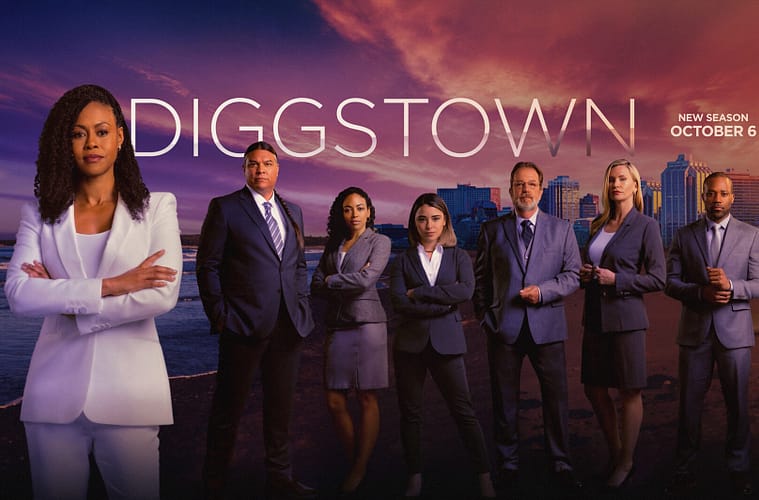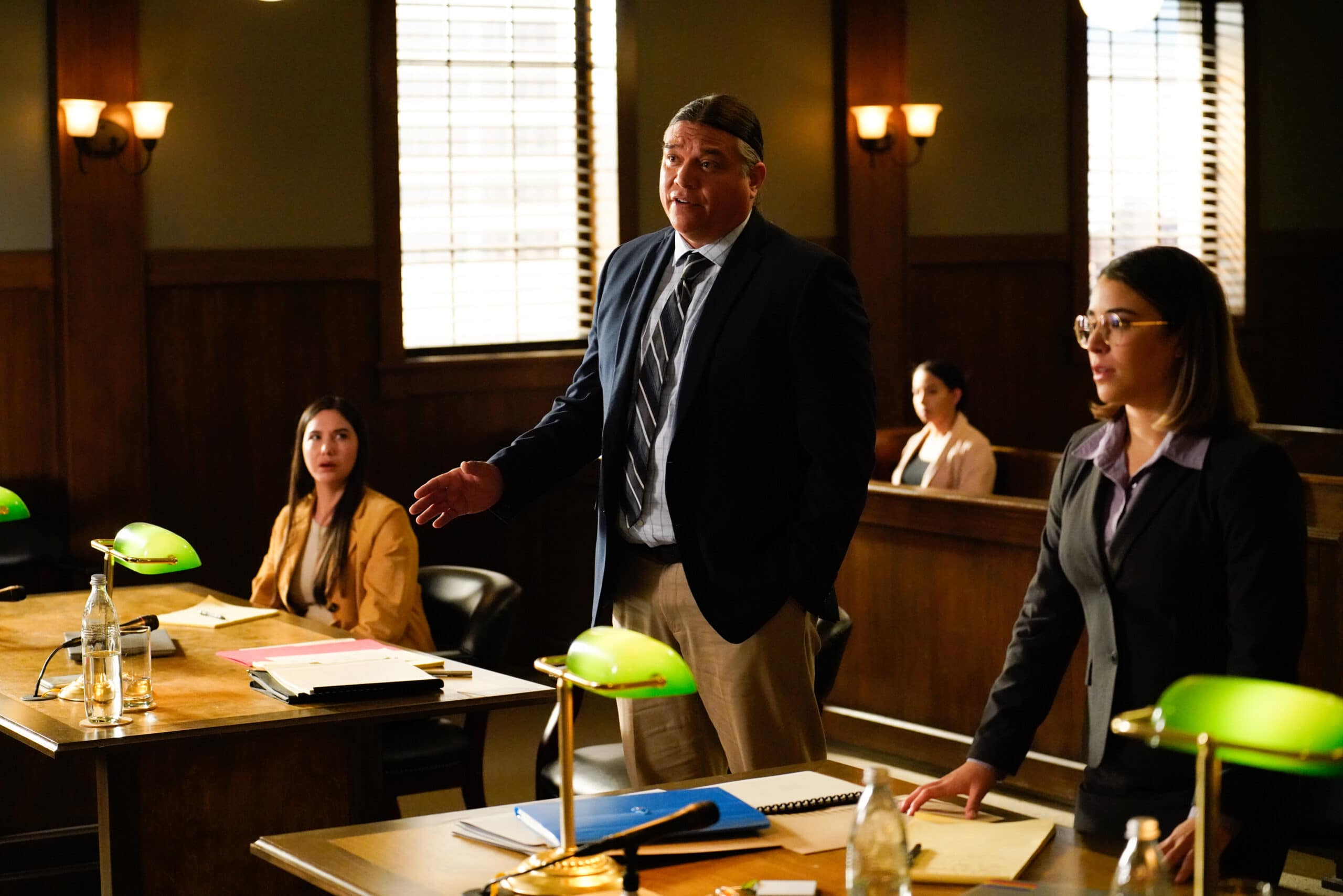A Canadian TV series will be using the power of pop culture/art to shine a bright national spotlight on a racist policy in an upcoming episode.
Are you familiar with birth alerts? If not, you’re not the only one. It is a “controversial” practice when child welfare services notify a hospital that they believe an expectant mother is “high risk” and that a newborn baby may need “protection”. Oftentimes it leads to the baby being stolen without the mother’s consent. Indigenous and other racialized women are disproportionately affected by this practice.
While many provinces have banned the practice, Nova Scotia (along with Quebec and a couple of other Atlantic provinces) still allows it to be enforced — meaning: birth alerts are still legal and taking place in many parts of Canada.
Diggstown, a popular Canadian legal drama will thrust this issue into the national spotlight with its upcoming fifth episode. The show has broken barriers by being one of only five TV series to date to have been created by and for Black Canadians.
In this episode, the lead character represents a group of Indigenous and Black women in a class-action suit against the Nova Scotia government; including Ivy Maloney, whose infants have been taken from them by Nova Scotia’s Community Services as part of the racist “birth alert” policy.
The series has always been informed by real-world situations and, given the number of world-shifting events that had occurred between seasons, the writers faced no shortage of choice as they broke the stories for season three.
All throughout season three, Diggstown dives deep into the injustices that constantly threaten the lives of racialized communities and the poor.
Juanita Peters: Episode Director
Juanita Peters is a multi-award-winning storyteller, writer and director of documentaries including “Hannah’s Story”, “I Made A Vow”, and “Africville Can’t Stop Now” and television series including “Studio Black” on CBC Television.
In recent years she has worked for the Council on African Canadian Education (Communications), and as Knowledge Lead for The Nova Scotia Restorative Inquiry for The Home For Colored Children.
Here’s what she had to say about the upcoming episode.
Why is it important to start addressing important topics like this [birth alerts] in film?
When we have an opportunity to have a wide audience, it’s important to talk about things that really matter. Birth alerts have created an unfavourable and unhealthy impact on a segment of the Canadian population and most people don’t know that this is a reality. When we communicate with people on a social or business level, it’s doubtful that this would ever enter into a conversation because most people who have had an experience with it have been made to feel embarrassed about it.
This episode goes further and deeper into the effects of this policy. How was this episode different from other projects that you’ve worked on / directed?
This project is so different from other projects because the people creating it have a lived knowledge of the stories that are being reflected. The writers and the producers bring a huge amount of intellectual and emotional intelligence to the project. It shows in the construct of every episode. It’s amazing when I hear a viewer or actor say “it’s like they are telling my story.”
Floyd Kane: Series’ Creator
Floyd Kane is a graduate of Dalhousie Law School. After spending years working as a lawyer and senior executive within the entertainment industry, he began a career as a writer and producer.
Kane’s recent producing credits include, “Jean of the Joneses”, which debuted at SXSW and screened at the Toronto International Film Festival; “Brown Girl Begins”, based on the renowned novel, “Brown Girl in the Ring,”; and “The Incredible 25th Year of Mitzi Bearclaw”, a comedy-drama, written and directed by renowned indigenous artist Shelley Niro.
Here’s what he had to say about the upcoming episode.
Why was it important to you to include this topic [birth alerts] in one of the show’s episodes?
The writers on Diggstown are always attempting to explore systemic injustice in our storytelling. As part of the brainstorming that occurs in the writing room, Amber-Sekowan Daniels, an Anishininew writer in our writing room, pitched the idea of birth alerts. When she described the policy, I was horrified. Horrified by the policy’s existence and horrified that I didn’t know this policy of removing children from their mothers at the moment of birth existed. And, to be clear, I was aware there were circumstances where children were taken from their mothers at birth, but I didn’t realize it was a formalized policy. I didn’t realize the children could be taken into care without the mothers even knowing a birth alert was on their file, I didn’t know mothers had to wait 30 days before they could go to court to contest the birth alert and attempt to get their child returned and I didn’t know about the scars this policy left on Indigenous communities. As a result, it was obvious we had to explore the impact of birth alerts on Indigenous women in season three.
How do you find the balance in addressing the topic in a way where all the information is put in the spotlight but without falling into overpowering legal and technical detail where it becomes harder for the audience to understand it?
To be honest, it is not that difficult because the great thing about writing for Diggstown is we have the option of having the lawyers use legal and technical details with one another. However, when our “lawyers” speak to their clients they excel at is breaking down complex legal jargon into plain language. When this happens, it’s our opportunity to bring the audience up to speed on the meaning of the legalese they may have heard unfolding between “Marcie” (the show’s lead character, played by Vinessa Antoine) and a prosecutor scenes earlier.
Diggstown is a hit legal drama from CBC and is currently on its third season; it airs every Wednesday night in Canada on CBC TV at 9 pm (9:30 pm NT); it is also available to stream anytime on CBC Gem (CBC’s free streaming service).
Published by HOLR Magazine





